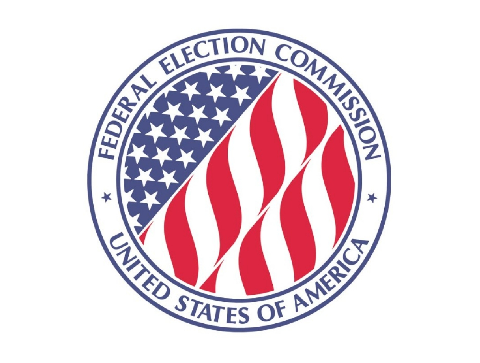This morning the Federal Election Commission will consider Chairman Allen Dickerson’s “Motion to Instruct the Staff to Prepare an Amended Form 1 Acknowledging Independent Expenditure-Only and Hybrid Committees.”
It has been more than a decade since the Supreme Court ruled that “independent expenditures, including those made by corporations, do not give rise to corruption or the appearance of corruption.” Citizens United v. FEC, 558 U.S. 310, 357 (2010), the Court of Appeals for the District of Columbia ruled in SpeechNow v. FEC, 599 F.3d 686 (D.C. Cir. 2010), and the District Court for the District of Columbia ruled in Carey v. FEC, 791 F.Supp. 2d 121 (D.D.C. 2011).
Independent expenditure-only committees (so-called “super PACs”) and hybrid committees are here to stay. The Commission laudably moved to acknowledge the court rulings in 2014, when it “discharge[d] its basic constitutional duty” by “updating its regulations to remove unconstitutional provisions.” Statement of Chairman Lee E. Goodman on the Citizens United v. FEC and McCutcheon v. FEC Rulemakings; see also FEC, Independent Expenditures and Electioneering Communications by Corporations and Labor Organizations, 79 Fed. Reg. 62797 (Oct. 21, 2014).
Updating Form 1 is a logical and long overdue next step. The current procedure, where a committee files a Form 1 and immediately attaches a “Commission-approved form letter” to self-identify as a super PAC or hybrid PAC makes no sense. All the information represented back to the Commission in the requisite “form letter” could be conveyed by a simple check box on Form 1, in the same way committees are asked now to check if they are a separate segregated fund or nonconnected committee.[1]
At best, the current process is a minor inconvenience that creates additional paperwork for committees and Commission staff. At worst, it is a trap for the unsophisticated who may not realize they need to file an additional form. See generally Citizens United, 558 U.S. at 324 (“The First Amendment does not permit laws that force speakers to retain a campaign finance attorney . . .”).
In the past, there has been resistance to updating official FEC documents to acknowledge the reality of a post-Citizens United world, at least without imposing new, extra-statutory disclosure requirements. The Commission should resist that impulse. Updating Form 1 should not be viewed as an opening to make extra-statutory inquiries into the organization, operation, or affairs of new political committees. Any update to Form 1 could be a simple check box, similar to those for separate segregated funds. It should not ask for additional information about the committee or its donors.
We hope the FEC will today begin the process of making long-overdue updates to Form 1 by approving the motion.
[1] The current form letters state that the committee will not use funds raised in unlimited amounts “to make contributions, whether direct, in-kind, or via coordinated communications, to federal candidates or committees.” See IE Only Committee Letter (Super PACs), available at https://www.fec.gov/resources/cms-content/documents/ie_only_letter.pdf; Non-Contribution Letter (Hybrid PACs), available at https://www.fec.gov/resources/cms-content/documents/noncontribution_letter.pdf. This same information could be conveyed through a footnote on Form 1 or in the “step-by-step” Form 1 instructions. See FEC, Instructions for Statement of Organization (Form 1), available at https://www.fec.gov/resources/cms-content/documents/fecfrm1i.pdf.













